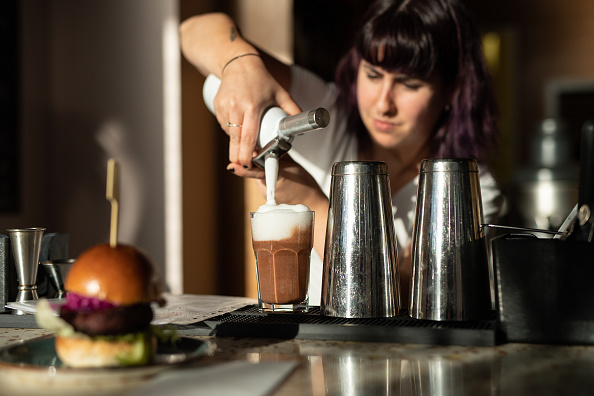Study: Over 10% College Students Avoid Sugary Drinks; Thanks to This
A new study says that putting warning labels on sugary drinks can lessen the students' consumption of these unhealthy beverages.
Science Daily reports that the study regarding the said warning labels reduced 14.5% in students' consumption in a college cafeteria. They added that the study results might have the ability to diminish sugar consumption in larger settings.
ALSO READ: Scientists Reveal How the Brain Curbs Cravings for Sugary Food
On Sugary Sweetened Beverage Taxation

Prime reports that sugary sweetened beverage taxation acts as a priority policy for promoting health and funding investments in communities most affected by diet-related diseases. They added in their article that eight US jurisdictions and 40 other countries implementing the tax and evaluations demonstrate that these policies reduce sugary sweetened beverages intake and purchase.
On Warning Labels
It is remembered that tobacco products were also placed on warning labels, including medical conditions. Taking the same strategy, Science Daily reported that the researchers did the same process. The only difference is that the researchers placed the warning labels on the beverage dispensers at a cafeteria at the University of Michigan in one semester.
READ ALSO: Should You Completely Remove Diet Soda From Your Diet? Here's What One Expert Says
UC Davis added in their article that adhering to the proposed California legislation, the bright yellow warning sign with a large tringle and exclamation mark states: "Warning: Drinking beverages with added sugar(s) contributes to Type 2 diabetes, heart diseases, and tooth decay". They also note that two other cafeterias with no warning signs served as control sites.
Sugary Drinks and Illnesses
According to the Centers for Diseases Control and Prevention (CDC), frequent drinking of sugary beverages is related to obesity or weight gain, type 2 diabetes, kidney diseases, heart diseases, non-alcoholic liver disease, gout, and other health concerns. They also report that sugary drinks are the leading source of added sugar in the American diet.
UC Davis' assistant professor of Nutrition and Human Development, Dr. Jennifer Falbe, notes in the release that sugar-sweetened beverages are a major driver of chronic diseases. She added that health warning labels might reduce the consumption of the said drinks, but she notes that the labels' efficacy in real-world settings is only commencing to start.
Results of the Study
According to Science Daily, the researchers noted that among 840 participants across all cafeterias, consumption of sugary sweetened beverages with warning labels has a significant decrease by 18.5 percent compared to a 4.7 percent decline in the cafeteria without the warning labels.
University of Michigan School of Public Health's assistant professor of Nutritional Sciences, and lead author of the study, Cindy Leung, ScD, MPH, said in the article by UC Davis that the results specify that warning labels may be effective against the high consumption of sugary drinks especially pink lemonade, sweetened teas, and milk chocolate in which sugar is well known. Researchers also concluded in the release that these results provide evidence and inform future institutional strategies in reducing the consumption of sugary sweetened beverages.
READ NEXT: Consumption of Sugary Drinks While Breastfeeding May Impact Infant Cognitive Development?
Check out more news and information on Diet Trends on MD News Daily.
Dec 08, 2020 12:54 AM EST





